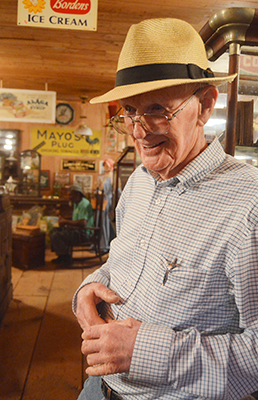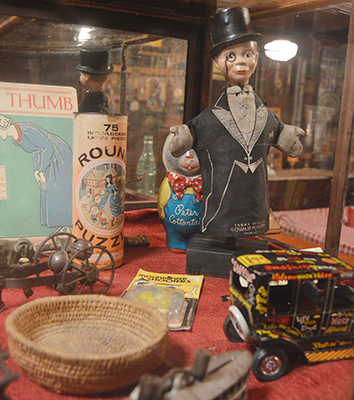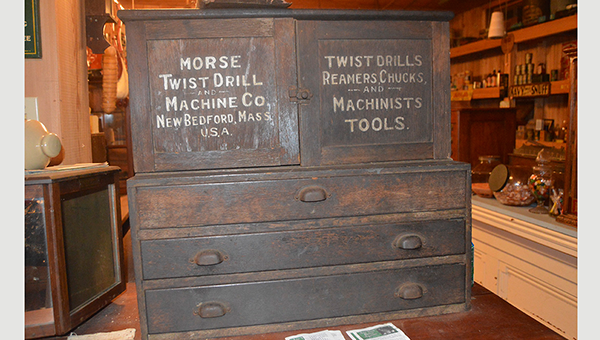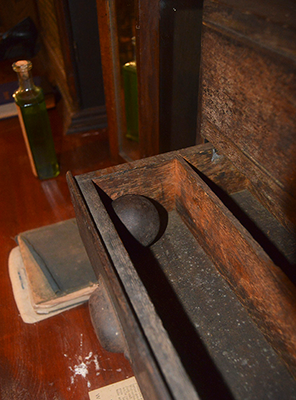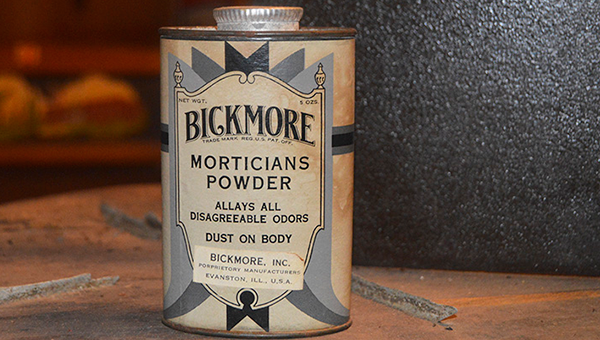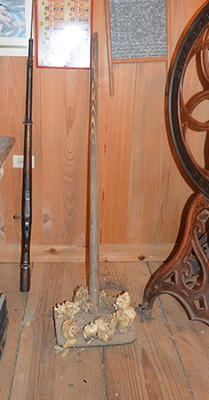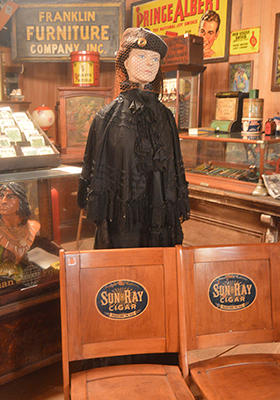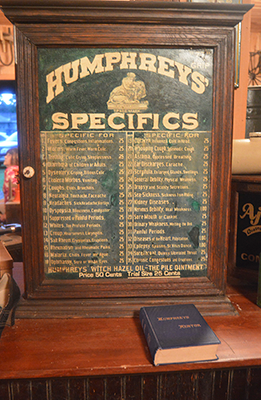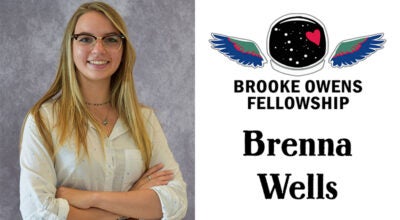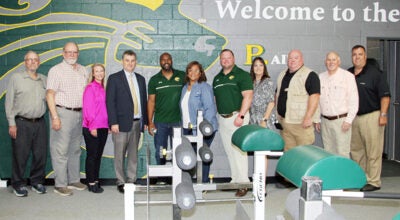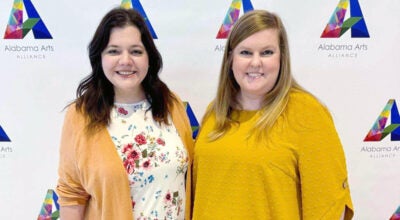THE WAY THINGS WERE [with gallery]
Published 2:44 am Saturday, June 30, 2018
Display in McLelland’s museum store documents different lifestyle
Robert McLelland spent years building a collection of things from days gone by. Then he built a museum store near his house in which to display them.
As he talked about his memories and his collection to members of the Covington Historical Society on Thursday night, he said he has one hope for the people who visit his showplace.
“I want them to understand the way things were,” he said.
He started by collecting “anything my grandmother had and would give me,” he said. That would include poll tax receipts, toys, letters, and any manner of antique thing one can imagine.
The Great Depression was on when McLelland was born in 1930. Previously, his mother was a school teacher and his daddy worked at the Ford place in Georgiana.
“He didn’t have a dime,” McLelland said.
The young family moved into his great-grandparents’ old house in the Fairfield community that “leaked like crazy.” They ate lots of cornbread, eggs, chicken, and pork, thanks to his grandparents’ generosity.
“That’s the reason gophers are extinct,” he said. “Folks used to say that they ate so many of them the outhouse crawled off.”
Despite the hardships, he said, “We survived.”
“The worst part was in the summer,” he said. “We didn’t have screens over the windows, so we slept with mosquito nets over our faces, and tried to cover the rest of our bodies so the mosquitoes wouldn’t bite.
“In the winter, you had to haul water to take a bath by the fire. Most of the time you didn’t.”
Times were hard. The banks had no money, so they couldn’t provide farmers with crop loans.
“Everything stopped coming except children,” he said.
McLelland said his father wanted to buy a mule, but no one would sell him one on credit. He went to the O’Neal’s mule barn. They wouldn’t sell him a mule, but they told him they had put some out to pasture to die, and he could have any one he wanted.
“They were skin and bones,” McLelland said. “When he found one that actually looked up at him, he brought the old mule home.”
His father had to borrow feed to get started, but soon got the mule in good enough shape to blow.
Flour and sugar were scarce, but he said his mother would make cakes from cornmeal and syrup.
He recalled coming to town with his family on Saturdays when the Square was thick with people. One of his favorite pastimes was to slip off from his family and watch the deputies bring in a paddy wagon of intoxicated men and place them in the South Cotton Street jail.
“They would get them by the gallusses, and throw them in.”
His family eventually moved to town. At 17, McLelland went to work at Covington Electric, and spent 15 years there before going into business for himself. He wired homes at night to save the money he needed to buy property, and entered an agreement with Gulf oil to get a building financed for 10 years.
And when he could, he started collecting. Most of his collection centers around what one would have found in a store, and he chose to display it that way. Many of the cabinets he restored.
Among the items in his collection is a 1925 Hudson limousine which was in the Hughes estate in Florala. The vehicle, which last had a tag in 1929, only has 9,000 miles on it. He also has a 1932 Ford truck that served as an ambulance, hearse, and many other purposes in the Fairfield/Loango communities when McLelland was growing up. It was parked for 42 years in Loango, he said, before he convinced the owner to let him restore it.
At 88, he has not stopped working. He recently took the test to maintain his electrician’s certification – he was putting in an RV park and wanted to wire it himself.


